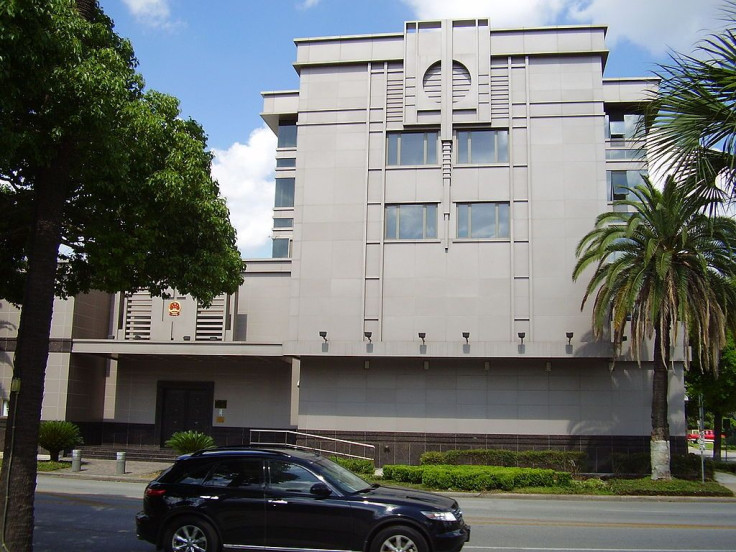Action Replaces Rhetoric: Closure of China’s Houston Consulate May Jeopardize US Debt

KEY POINTS
- Secretary of State Mike Pompeo said the U.S. has clear expectations for Chinese behavior and will take action when they are not met
- The closure followed the indictment Tuesday of two Chinese hackers
- The administration has been ratcheting up the rhetoric against Beijing for months, with President Trump particularly vexed over the handling of the coronavirus outbreak
President Trump and his administration have been ratcheting up the rhetoric against China for months, and Wednesday’s decision to shutter the Chinese Consulate in Houston was, perhaps, the most serious diplomatic action taken in years.
The question is whether retaliation by Beijing will jeopardize the $1.1 trillion in U.S. debt held by the Chinese government – a fraction of total U.S. debt, which stood at $26.5 trillion Wednesday.
“Concerns are likely overexaggerated – particularly at a time when the U.S. is already running multitrillion-dollar deficits in the age of COVID. A period of international global instability gives the U.S. an advantage, so long as U.S. Treasurys are still seen as one of the safest assets on the world stage,” Tho Bishop of the Ludwig von Mises Institute told International Business Times.
“While America's fiscal and monetary policy should rightfully concern holders of U.S. debt, these must be considered relative to other major economies. … The dollar's role as the international reserve currency continues to be Washington's greatest source of leverage here.”
The Trump administration's move followed the indictment Tuesday of two Chinese hackers accused of trying to steal coronavirus research data at the behest of Chinese intelligence. They allegedly were part of a decadelong effort to steal trade secrets for both self-enrichment and the benefit of the Chinese government.
But charges of intellectual property theft and trade agreement violations are longstanding, as are human rights violations.
Secretary of State Mike Pompeo, who was in Denmark, said the administration has had enough. He said the administration has laid out “clear expectations” for behavior by Beijing and would take action to protect U.S. interests when those expectations are not met.
Sen. Marco Rubio, R-Fla., said the consulate in Houston was the “central node” of China's “vast network of spies” in the U.S.
“It is no secret that Chinese state actors have long been suspected of engaging in espionage on U.S. soil, including those serving in official roles. The Houston consulate is no different, and it is possible that this is just the tip of the iceberg,” said Rob Davis, CEO of the cybersecurity company CriticalStart.
“While the threat of nation-state sponsored cyberattacks is not new, we’ve seen little public-facing retaliatory action taken. With the administrations demand for the closure of the Chinese Consulate, and subsequent destruction of documents, we may see even more activity from nation-state advanced persistent threats.”
Washington and Beijing have been trading barbs for decades though President Trump has professed a close relationship with Chinese President Xi Jinping. Much of Trump’s tenure in the White House was marked by tit-for-tat trade tariffs, and both the Trump and Obama administrations have decried Chinese construction of small islands in surrounding waters to extend fishing rights and military influence. Trump also has been highly critical of China’s handling of the coronavirus pandemic, which has led to a global recession.
“A breakdown in economic relations between countries naturally leads to a breakdown in diplomacy and can escalate into more overtly military action,” Bishop noted. “While a full economic decoupling would have been considered unrealistic just a few years ago, changes in supply chains – amplified by COVID-related issues – along with a deteriorating global economy widen the number of potential outcomes here.”
Bishop noted the Chinese Communist Party has never really dealt with a major financial crisis and survived the 2008 global financial meltdown in much better shape than other major economies.
“Insecurity from both sides only creates further incentives to scapegoat the other, and rally nationalist sentiments internally,” Bishop said.
“How the [Chinese Communist Party] would respond if the party is faced with a major economic crisis is unknown. If Xi's control over the party is as strong as he would like it to be seen, then it would make internal reforms difficult and could set up a very dangerous world stage.”
© Copyright IBTimes 2025. All rights reserved.





















